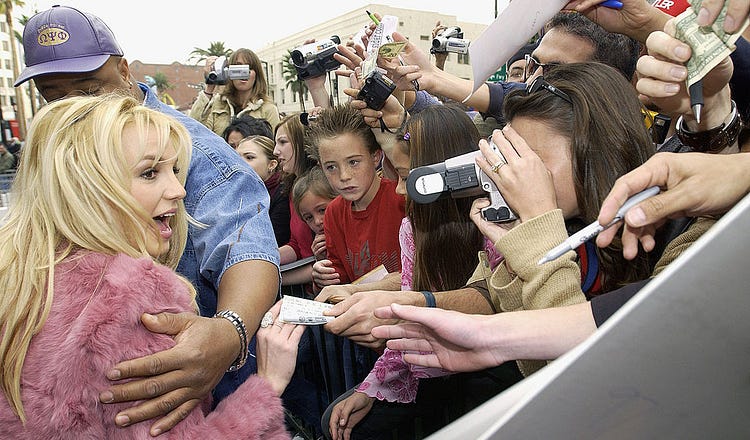Who Wronged Britney Spears?

Britney Spears greets fans at a ceremony honoring her with a star on the Hollywood Walk of Fame on November 17, 2003. (Vince Bucci via Getty Images)
She blames her family, the legal system, pop culture, and paparazzi. But what if she was just sick?
124
For anyone who was alive in 2007, her memoir The Woman in Me is a catharsis. We finally get to read, in Britney Spears’ own words, just what the hell happened all those years ago, when the pop star appeared to have lost her mind.
For the #FreeBritney movement, the autobiography reads like vindication. In the book, Spears credits her die-hard fans specifi…
Continue Reading The Free Press
To support our journalism, and unlock all of our investigative stories and provocative commentary about the world as it actually is, subscribe below.
$8.33/month
Billed as $100 yearly
$10/month
Billed as $10 monthly
Already have an account?
Sign In

